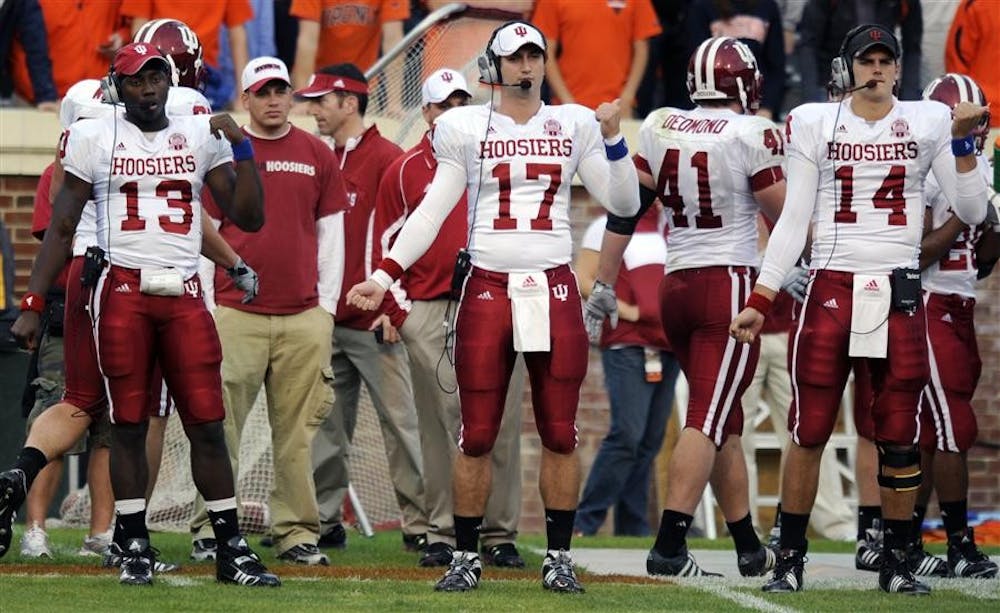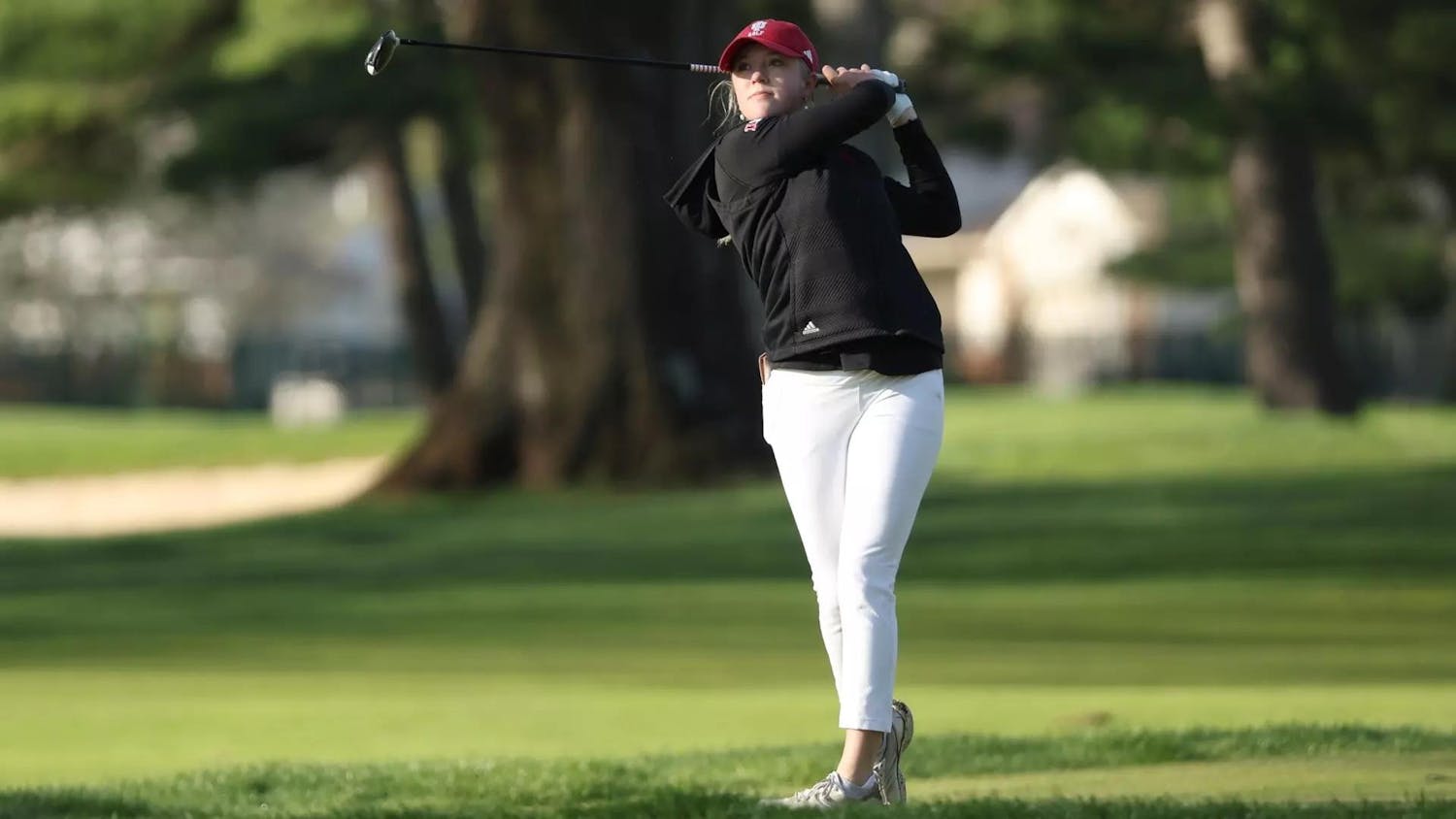The U.S. government classifies its restricted information in three levels: confidential, secret and top secret.
If the IU football team had a classification system, its sideline signals would fall in the “top secret” category.
These signals are the backbone for the Hoosiers’ offensive plays. Backup quarterbacks Edward Wright-Baker, Adam Follett and Teddy Schell stand on the sideline wearing headsets to hear the play call from offensive coordinator Matt Canada, who sits in the booth.
The trio relays that call to junior quarterback Ben Chappell and to Chappell’s wide receivers through a process of finger circling, arm waving, helmet tapping, knee touching and hand clapping – and that’s just a sample of their signals.
If an opponent thinks they have got it all figured out one week, they’re wrong – the signals change for every game.
Even IU head coach Bill Lynch is out of the loop when it comes to the quarterback signals.
“They have these secret meetings and get all their signals, and they don’t share that with anybody,” Lynch said.
Lynch compared the signals to third base coaches in baseball, who are notorious for their over-the-top antics and secret signals to tell runners how to run the bases.
The players and coaches do admit a few things. Only one of the three quarterbacks is the “live” guy – the other two offer “dummy” signals. They sometimes change the live guy multiple times during the game. The signals often represent the word associated with the play in some way.
Other than that, lips are sealed.
And it’s not exactly an easy system to pick up. The signals can be reversed, and they can change meaning throughout the game.
“Basically, it’s our sort of sign language where different hand signals signify different running plays and different pass routes,” Schell said. “We have different orders, whether it be left to right or right to left, or however we’re going to do it, we decide before the game.”
Canada said it is an intentionally confusing system.
“It’s not as easy as you might think,” Canada said. “To signal is one thing, to be the guy who is the dummy is even harder.”
Canada said the dummy has to sell the fake signals and can often get confused about whether he is live or not.
However, the players said they rarely mess up.
“It probably took me two weeks in the spring to get everything down,” Schell said. “Now, it’s really second nature – I don’t even think about it anymore.”
Chappell, who has had experience as a signal caller for the last two seasons, said he picked it up just as quickly.
“At the beginning of camp, it was confusing,” Chappell said. “By now, we have it down.”
On many other college football teams, an assistant coach is responsible for the play-calling signals.
“We have a lot of faith in our quarterbacks,” Canada said. “I trust them, and they care about it. It allows our coaches to coach. They can watch the play instead of worrying about the signals.”
Lynch also said the signal calling adds an entertainment element to the game.
“That’s part of the fun,” Lynch said. “They can make up their own code words and their own signals. As long as they understand it, that’s all that matters.”
Backup QBs operate sideline signals

Get stories like this in your inbox
Subscribe



